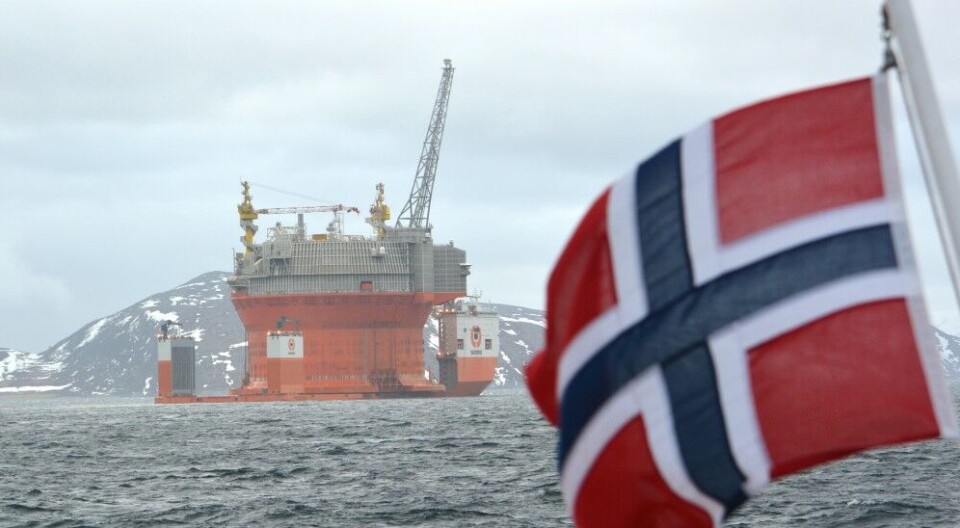
In the name of energy security, Europe should not support more offshore drilling in the Arctic
It seems like the perfect storm for Europe’s energy security as winter is fast approaching and energy prices are rising. Having turned away from Russia as a gas provider, the European Commission has begun negotiating with Norway. A deal for long-term energy cooperation will be discussed during the EU energy emergency summit on September 30, 2022.
On the face of it, given the dire geopolitical context, the EU’s turn to Norway appears to be a good policy option on several counts. It promises to reduce volatile energy prices and stabilize Europe’s energy supply, which has been disrupted by the war in Ukraine. It offers an alternative to dealing with a regime that has been leveraging gas to manipulate European governments. It also ensures that the money European energy consumers and companies spend on gas does not finance the invasion of another country.
Possible significant drawbacks for the climate
Yet by striking new long-term gas contracts with Norway, the EU would accelerate hydrocarbon production in the Arctic region. This would be bad news, not only for unique Arctic ecosystems, but for the global climate.
The long-term agreement on gas prices between Norway and the EU involves expanding offshore drilling in Norway’s Arctic region—an initiative that Norway has long pondered. Securing these contracts would give investors a green light to explore and develop new fossil fuel reserves in the northern Barents Sea above the marginal ice zone—a remote, biodiverse area with pristine ecosystems that is home to many threatened species. A new gas pipeline connecting the Barents Sea reserves with the rest of the Norwegian gas network is also being considered.
Increasing offshore drilling in the Barents Sea would go against the commitment the EU made in its 2021 Arctic Strategy not to support fossil fuel production in the Arctic. According to the strategy, the EU “will insist that oil, coal and gas stay in the ground, including in Arctic regions.” The document also says the Commission “will explore with partners a multilateral legal obligation not to allow any further hydrocarbon reserve development in the Arctic or contiguous regions, nor to purchase such hydrocarbons if they were to be produced.”
Long-term economic wins are questionable
The environmental calculus against new oil and gas developments in the Arctic is crystal clear. But the long-term economic considerations also do not support the proposed energy deal.
Given that it takes more than a decade from discovery to production (the average development taking 16 years or more), by the time any new gas reserves begin to operate, Europe should be well on its way to zero emissions, given its goal to reduce emissions by at least 55 per cent by 2030 and to be carbon neutral by 2050. Opening new fossil fuel reserves to export more hydrocarbons to Europe contradicts the EU’s green transition plan. There seems to be a mismatch between the EU’s immediate need for a secure gas supply and its long-term plan to explore new oil and gas reserves in the Norwegian Arctic.
Expanding oil and gas exploration in the Arctic will also thwart the collective commitment to restrict the global temperature rise to 1.5 °C. The world has more than enough oil and gas reserves as it is. As the International Energy Agency stated in its report, Net Zero by 2050: A Roadmap for the Global Energy Sector, one of the key milestones in the global journey to emission neutrality is “to make no investment in new fossil fuel supply projects.”
Unique Arctic ecosystems could be destroyed
Having already experienced temperature increases at two or three times the global rate, the Arctic is particularly vulnerable to the impacts of exploration, extraction, and transportation of fossil fuel and mineral resources. Expanding these activities heightens the risks of oil spills and leakages, increases underwater noise pollution from shipping and seismic surveys, and threatens wildlife and local communities. Because of the Arctic’s remoteness and harsh terrain, it will take longer to respond to a spill or organize a clean-up operation there. An accident could ruin local ecosystems for decades, wiping out populations of species and destroying traditional food supplies for Indigenous and northern communities.
It is also worth noting that the fast pace of climate change in the Arctic is already causing rapid permafrost degradation. Any infrastructure built on these thawing and unstable surfaces will need continuous monitoring, maintenance and upgrading, adding to the risks and costs.
A way forward
The EU should honour its commitment not to buy oil and gas produced in the Arctic. Any new EU–Norway gas agreement should include only gas produced in existing hydrocarbon reserves.
On a positive note, the EU–Norway energy cooperation has the potential to speed up Europe’s transition to clean energy by prioritizing renewable energy sources, including hydropower, offshore wind, wave power and solar modules. Norway has already made significant advancements in these.














